NATRAX Aims To Become The Go-To Solution For All Tyre Industry Needs
- By Nilesh Wadhwa
- April 18, 2025
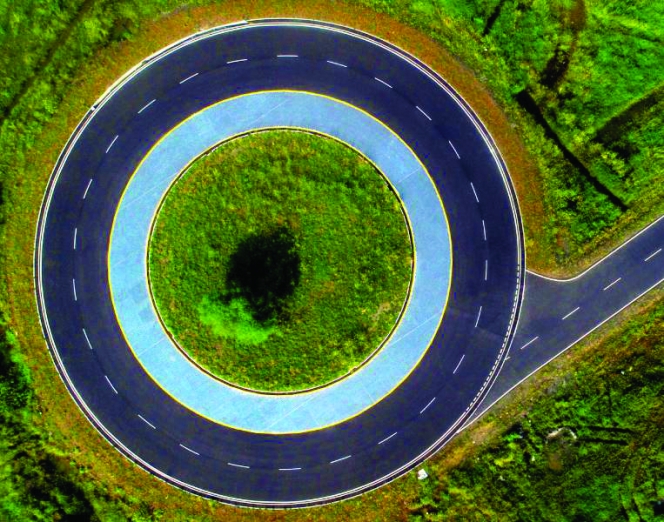
In an exclusive interaction with Tyre Trends, Dr Manish Jaiswal, Director, National Automotive Test Tracks (NATRAX), shares the key developments taking place, how the organisation is supporting the domestic tyre industry, upcoming trends and future plans.
At present, what are the services that you’re providing for the tyre industry at NATRAX?
NATRAX is a proving ground where vehicles and all their components are tested on our various tracks. A proving ground is essentially a place where a vehicle must prove itself under various challenging terrains. It needs to test and certify itself, as well as support development activities. Our tracks cater to durability, acceleration, braking, noise, endurance, high speed, grip handling and wet-grip conditions.
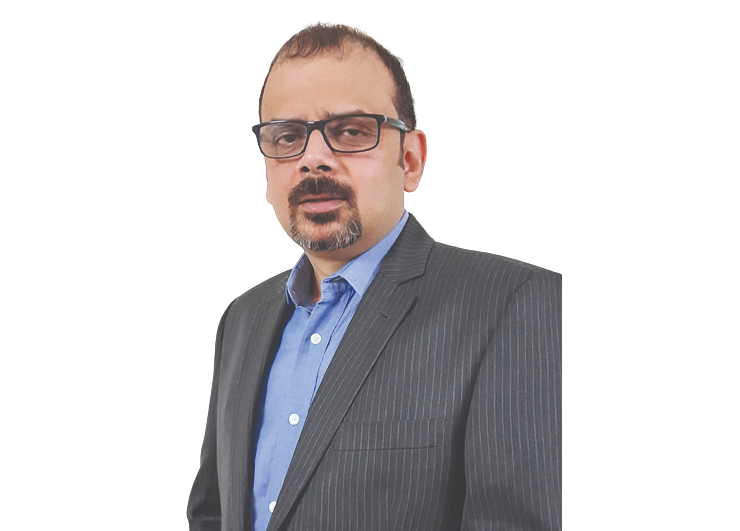
Tyres are the only point of contact between a vehicle and the surface. Therefore, for vehicle dynamics testing, the tyre industry is a crucial component. NATRAX supports tyre industry in terms of the testing requirement for acceleration, braking, cornering, handling and noise.
What about homologation?
We support the tyre industry in various ways when it comes to homologation. One of the key activities is tyre labelling, in line with the new AIS 142 requirements. Every tyre must be labelled, similar to safety ratings. This labelling involves testing for rolling resistance, wet handling, wet grip and noise.
All these activities take place at NATRAX, making us the default agency for tyre labelling. We are also planning to procure a rolling resistance machine, which should arrive in a month or two. Once that happens, the entire set of tyre labelling activities will be conducted at NATRAX for both commercial vehicles and passenger vehicles. This is one of our significant new developments.
What are the latest demands from the tyre industry?
We are in close contact with tyre manufacturers for various activities. One key demand is for wet handling and aquaplaning tests, for which they currently need to go abroad because such facility does not exist in India. Wet handling and aquaplaning on curves are critical safety features. For instance, when a thin film of water forms on the road, the tyre can lose its adhesion to the surface, so it’s vital to test grip in such conditions.
We are planning to build a special-purpose track for wet handling and aquaplaning and are requesting government funding for this. Once established, this will prevent the tyre industry from needing to go overseas for these tests.
Another growing concern is tyre wear and its environmental impact. Previously, emissions were only considered in terms of tailpipe emissions, but tyres also contribute to microplastic pollution and other wear particles that spread through road contact. We are collaborating closely with the tyre industry to find solutions – whether through a tyre wear machine or a specially designed track. This could become a major project, but we are committed to addressing this need.
Are you supporting tyre makers for their products designed for exports?
Tyre manufacturers often have to go to agencies in Japan and Germany for comfort testing. Developed markets have very different requirements because the driving conditions vary significantly from those in India. Comfort and ride quality are far more important in developed markets.
We are discussing how to address this need domestically. While it’s not an immediate concern, we must eventually ensure that the tyre industry can conduct 100 percent of their testing in India. Some tests, like those for snow and ice conditions, will always be challenging to replicate here due to cost and environmental factors. However, most other tests are within our long-term plans.
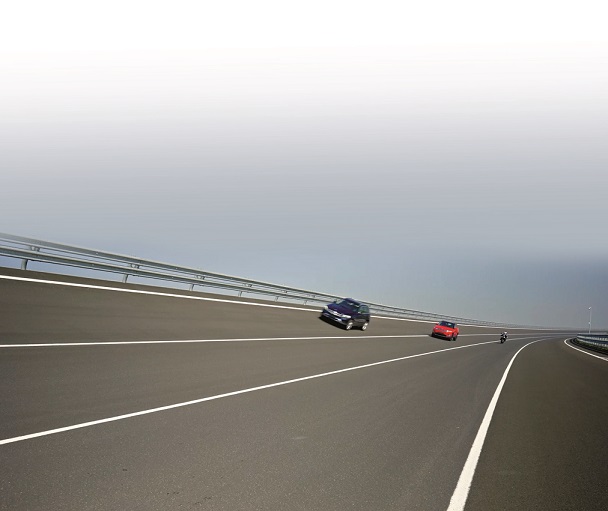
Has simulation reached a maturity level where it can replace physical testing?
Simulation has evolved significantly over the last 25–30 years, but we haven’t yet reached a point where it can fully replace physical testing. The complexities of vehicle systems – including OEM products, components, tyres, control systems, road conditions and driver behaviour – make complete reliance on simulation difficult.
India also faces challenges in developing high-fidelity simulation models. Accurate virtual replication requires the integration of confidential data from various partners, which is not easy to achieve. Nonetheless, we are planning for the future by developing the right simulation environment and infrastructure, such as high-fidelity simulators and virtual testing benches. This will help reduce dependence on track testing and streamline product development.
Do EV tyres require separate on-ground testing?
EV tyre testing largely follows the same procedures as conventional tyre testing, with standards remaining consistent across both types.
However, from a manufacturing and design perspective, EV tyres often use different materials and designs – including rubber, elastomers, fabric and steel – tailored to meet OEM requirements. These differences may eventually call for specific tests, but the current standards remain aligned.
In developed markets, there are separate summer and winter tyres. Do you think India needs this distinction?
Fortunately, India does not experience the extreme temperature variations seen in countries like the US, Canada or parts of Europe. In those regions, temperatures can range from 30 degrees Celsius to -10 degrees Celcius, necessitating different tyre types for safety and traction.
In India, extreme cold weather is limited to specific areas like Kashmir and only for brief periods. Given this, the added cost of maintaining separate summer and winter tyres is not justifiable.
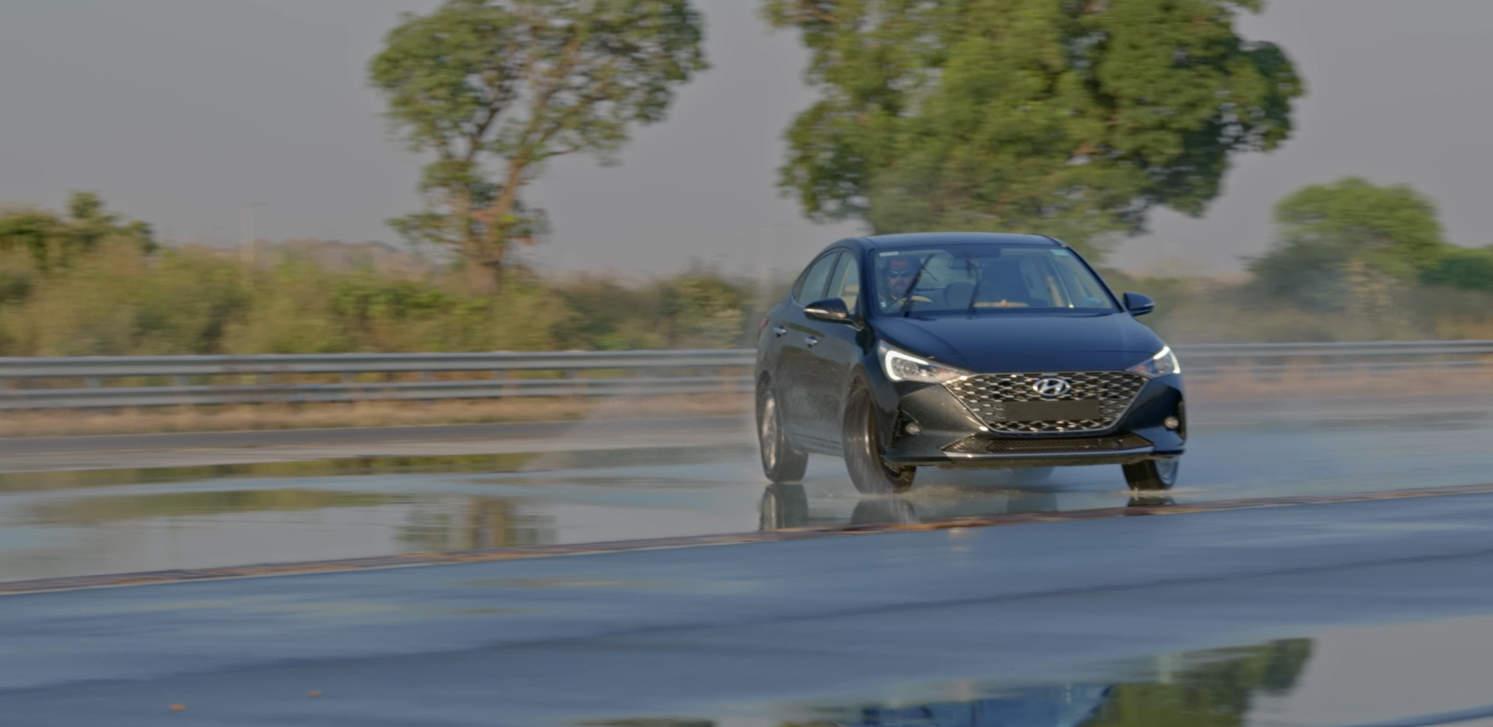
What are NATRAX’s immediate investment plans?
While we have not worked out the exact figures, we are in the process of investing significantly (in 2025) in form of rolling resistance machine and upgradation of two-three tracks for tyre industry requirements. Our immediate future plans include significant investments for a new wet handling and aquaplaning track.
We maintain close communication with the tyre industry, prioritising their requirements to support their growth and development.
Which companies are you currently working with?
We collaborate with almost all Indian tyre manufacturers and are also engaging with multinational and global tyre brands. The goal is to develop their R&D ecosystems in India.
As international players shift their development activities to India, local testing becomes inevitable. This shift will allow NATRAX to play a crucial role in supporting their R&D and testing needs.
What is the lead time for tyre makers to approach NATRAX for testing, and how long does testing typically take?
Many tyre manufacturers have teams stationed at NATRAX around the clock, so there is no lead time. Testing happens daily.
If they have special requirements, they approach us and we are usually able to accommodate them. Approximately one-third of our track usage comes from the tyre industry. With our 50-kilometre proving ground – the largest in India and one of the largest globally – we operate at an entirely different scale.
As we expand our facilities for ADAS (Advanced Driver Assistance System) and connected vehicle testing, even more tyre industry testing will take place at NATRAX. We aim to become the go-to solution for all tyre industry needs.
KraussMaffei Technologies Appoints Dirk Musser As New Managing Director
- By TT News
- February 27, 2026

KraussMaffei Group is set to implement a leadership transition at its subsidiary, KraussMaffei Technologies, with a change at the board level. Jörg Stech, who has served as Chairman of the Board and global head of injection moulding, automation and additive manufacturing since 2023, will be departing on 31 March 2026 at his own request. He will be succeeded by Dirk Musser, the current Head of Group Transformation at the parent company, who has been appointed as the new Managing Director effective 1 April 2026. The leadership handover between Stech and Musser is already in progress, ensuring a seamless transition.
Stech’s tenure unfolded during a difficult economic period marked by financial losses and a contracting market. He responded with decisive measures aimed at margin enhancement and balance sheet improvement, which laid the groundwork for the company's long-term stability. Under his direction, the product lineup for injection moulding and automation was revitalised with the introduction of the LRXplus linear robot, the fully electric PX series and the MC7 control system, all launched in late 2025 alongside new artificial intelligence tools. He also launched a multi-year development initiative and pushed the company into new markets, such as aerospace and drone technology, by leveraging expertise in specialised processes like ColorForm. Through a focus on operational excellence, pricing discipline and capital efficiency, Stech guided the company to a significantly more resilient position compared to three years prior, despite the persistent downturn in injection moulding.
Musser brings to his new role extensive experience in transformation and finance. In his current capacity, he has already been closely involved with KraussMaffei Technologies, collaborating with its leadership to drive strategic initiatives and enhance operational performance. His qualifications include sharp analytical abilities, a strong grasp of industrial processes and a broad international perspective. An economist by training, Musser has accumulated over 20 years of leadership experience across various technology and industrial sectors. His background includes leading major transformation and turnaround projects at CRRC New Material Technologies, where he stabilised plant earnings in North America, as well as directing operational and financial restructurings during his time at Deloitte. He has also held roles with P&L responsibility, managing global supply chains and post-merger integrations at CRONIMET and has prior experience with automotive manufacturers including Daimler and Fujian Benz Automotive in China.
Alex Li, CEO, KraussMaffei Group, said, "Jörg Stech took on responsibility in a difficult situation, set clear priorities and launched decisive initiatives. The successful market launch of the LRXplus linear robot and the all-electric PX machine series, the consistent focus on profitability and the sustainable strengthening of our balance sheet are visible results of this work. We would like to express our sincere thanks to Jörg Stech for his leadership, integrity and team spirit. We value Dirk Musser as a leader who combines strategic clarity with operational excellence. In a short period of time, he has provided vital impetus for the transformation of the group and impresses with his analytical strength, decisiveness and deep understanding of our processes – not least through his successful collaboration with the managing directors of KraussMaffei Technologies. We are convinced that he will continue on this path with clarity and creative drive to successfully align KraussMaffei Technologies."
Stech said, "After many years in an environment full of technological, economic and geopolitical challenges, I look back with great gratitude on a time in which I was always surrounded by an exceptional workforce. Together, we achieved things that many initially thought were impossible. This cooperation, this willingness to push boundaries and create something new, was a joy for me. My special thanks go to all stakeholders in the company and, of course, to all employees. I leave with respect, gratitude and the conviction that this long-established company will continue to achieve great things in the future."
Musser said, "Together with my fellow managing directors Dr Frank Szimmat and Markus Bauer, I want to resolutely drive forward the further development of KraussMaffei Technologies. Our focus is on further expanding stability and performance and taking the necessary steps to successfully position the company in a dynamic market environment. I look forward to shaping this path together with our teams.”
Dario Marrafuschi Succeeds Mario Isola As Pirelli’s Head Of Motorsport
- By TT News
- February 27, 2026
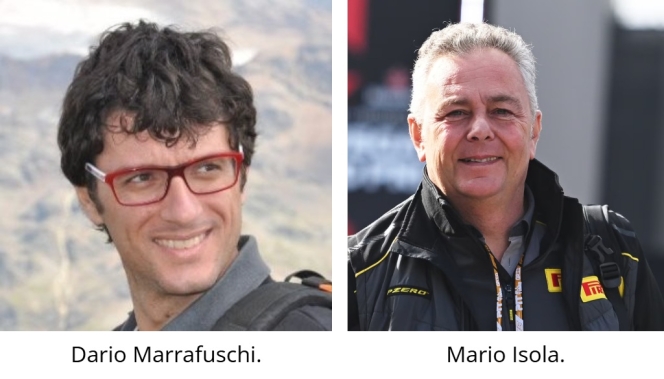
Italian tyre manufacturer Pirelli has announced that Dario Marrafuschi will become the Head of its Motorsport Business Unit, effective 1 March. He succeeds Mario Isola, who will remain with the company until 1 July to assist with the leadership transition.
Marrafuschi joined Pirelli in 2008 and has held positions within the Formula 1 Research and Development department. Most recently, he led the development of the company's road products.
He will report to Giovanni Tronchetti Provera, Executive Vice-President of Sustainability, New Mobility & Motorsport. The appointment comes as the company continues its role as the tyre supplier for various global motorsport categories.
Isola departs the company following a tenure that included the expansion of Pirelli’s motorsport operations. The company stated that Isola will pursue other professional opportunities following his departure in July.
Changing Tyre Dynamics In A Changing Car Market
- By Sharad Matade
- February 27, 2026
For Continental Tires India, the passenger vehicle market in India is entering a phase where scale and structure are finally aligning with its longstanding premium ambitions. Passenger vehicle sales reached a record 4.3 million units in 2024, expanding by 4–5 percent year on year, but it is the composition of that growth – rather than the headline volume – that is reshaping the company’s strategy. Utility vehicles now account for approximately 58 percent of total passenger vehicle sales, up sharply from about 51 percent the previous year, cementing SUVs and crossovers as the dominant force in the market.
This structural shift has direct consequences for tyre manufacturers operating at the upper end of the value spectrum. Larger vehicles bring higher kerb weights, bigger wheel diameters and greater expectations around refinement, safety and performance. For Continental, the change represents not merely an increase in addressable demand but a decisive move towards tyre categories where technology differentiation and pricing discipline can coexist.
Samir Gupta, Managing Director of Continental Tires India, calls this phase a turning point, not a temporary high. He says the surge in utility vehicles – driven by electrification and more premium cars – fundamentally changes the economics of the passenger tyre market in India.
“Let me clarify one thing first. The utility vehicle segment is no longer small. Last year, around 60 percent of passenger vehicles sold in India were utility vehicles, and including first-time buyers upgrading within this segment, the share goes beyond 65 percent,” Gupta says.

Industry data broadly supports this assessment. SUVs alone contributed close to three-fifths of all passenger vehicle sales in 2024, with compact utility vehicles accounting for a significant share of incremental volumes. The overall passenger vehicle market, at around 4.3 million units, has thus become structurally skewed towards larger formats – an inflection with long-term implications for tyre sizing, load ratings and product mix.
This shift shows in replacement demand. As vehicle footprints grow, rim diameters are increasing. “The market is clearly moving from smaller to bigger rim sizes. Demand for 17-inch and above tyres is rising sharply,” Gupta says. While these tyres are still a minority, their growth far outpaces the overall passenger tyre market.
Electrification is accelerating the shift. A substantial proportion of electric passenger vehicles sold in India today are SUVs, and Continental expects EVs to account for more than 50 percent of the passenger vehicle segment within five years. For tyre manufacturers, this creates new technical requirements – higher torque tolerance, lower rolling resistance and stringent noise control. “That creates a significant opportunity for us because our strengths lie in premium, high-performance tyres,” Gupta says.

Despite these favourable structural trends, premium tyres have historically struggled to gain traction in India. For much of the past decade, the market remained intensely price-sensitive, with tyres treated largely as commoditised replacement items. Continental’s response, Gupta explains, has been consistent rather than tactical pricing. “Right from the beginning, we have focused on fair pricing. The idea is simple – if we can clearly differentiate on performance and consistently deliver on those promises, price recovery will follow,” he explains.
The broader environment is now becoming more supportive. As vehicle prices rise and consumers migrate towards larger, more sophisticated vehicles, willingness to spend on tyres that enhance safety, comfort and driving confidence is increasing. This trend is also evident at the top end of the market. Premium and luxury passenger vehicle sales reached approximately 51,500 units in 2024, up around 6 percent year on year and crossing the 50,000-unit threshold for the first time – a symbolic marker of premium consumption in India.
Gupta sees premiumisation extending beyond luxury vehicles. “Earlier, India was extremely price-sensitive, but that is changing in higher segments. Consumers are upgrading vehicles and are more willing to invest in tyres that enhance safety, comfort and confidence,” he says.
The intensification of competition, with global premium tyre brands expanding or re-entering India, is viewed as a positive development. “Competition is always good,” Gupta says. “It gives you room to grow and improve.” More importantly, he believes it will help reframe the market. “More premium players will help move the market away from being purely cost-driven to being value-driven,” he adds.
Replacement market dynamics reinforce this view. Of the roughly 32–33 million passenger tyres replaced annually in India, tyres sized 17 inches and above account for about 12–13 percent. While the overall replacement market grows at 5–6 percent per year, this high-diameter segment is expanding at over 20 percent annually, closely tracking the shift in new vehicle sales.
This sharper focus on passenger tyres also explains Continental’s decision to exit the truck and bus radial segment in India. Gupta stresses that the decision was strategic rather than operational. Continental entered the TBR market in 2014, invested significantly and received strong feedback on product performance.
However, the economics proved limiting. Gupta says, “TBR in India is largely a B2B, fit-for-purpose market. Even if you have the best tyre, willingness to pay remains limited because fleet operators are under constant margin pressure.” Although commercial tyres offer higher absolute margins per unit, they consume substantially more raw material. “One commercial tyre uses six to eight times the raw material of a car tyre. Percentage margins are actually higher in passenger tyres,” Gupta explains.
After reviewing its portfolio, Continental chose focus over breadth. Exiting TBR allows the company to concentrate capital, technology and management attention on passenger and light truck tyres, where differentiation is more readily monetised. Gupta rejects the idea that a narrower portfolio weakens the company’s position. Commercial and passenger tyre customers, he argues, are fundamentally different – one driven by procurement economics, the other by consumer perception and emotion.
Indian consumers, Gupta believes, are becoming more tyre-aware. “Premiumisation is happening across the vehicle industry, not just in tyres. As consumers move to larger and more premium cars, their expectations also rise,” he says. Where tyres were once treated as an afterthought, buyers increasingly recognise their role in braking, grip, noise and overall driving confidence.
This change is evident at the retail level. Continental now operates more than 200 brand stores across India, and feedback from retail partners suggests customers are more informed and more demanding. Availability remains critical. “There is no point launching premium tyres if customers cannot find them,” Gupta says.
To support future demand, Continental is investing around INR 1 billion at its Modipuram plant, with the focus squarely on passenger and light truck tyres. The expansion will extend manufacturing capability from the current 20-inch limit to 22–23 inches, aligning local production with emerging vehicle trends.
Localisation, Gupta argues, is about adaptation rather than compromise. Indian road conditions, climate and driving habits require specific tuning without diluting global performance standards. Education and availability remain the principal challenges.
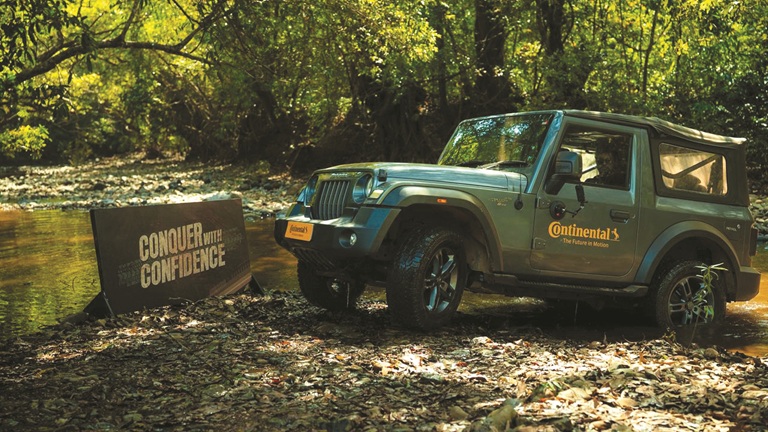
The recent launch of the CrossContact A/T² in India reflects this strategy. Introduced during Continental’s Track Day at Dot Goa 4x4, the product positions India among the early global markets for the tyre. “The first thing you notice is noise – or the lack of it,” Gupta says. “You hear the air-conditioning, not the tyre.” Ride comfort, grip and consistency across terrains define its appeal. As Gupta puts it, “Jahan tak soch jaati hai, wahan tak yeh tyre kaam karta hai.”
Looking ahead, Continental remains largely insulated from shifts in original equipment strategies, such as the gradual removal of spare tyres. Improved carcass design and stronger sidewalls are reducing puncture risk, but the company’s primary focus remains the replacement market.
For Gupta, the question is no longer whether India is ready for premium tyres, but how effectively manufacturers execute. “The market is finally ready for premium tyres,” he concludes. With passenger vehicle sales at record levels, SUVs firmly dominant and premium consumption expanding, Continental believes it is well positioned to grow alongside India’s evolving mobility landscape.
Falken Tyre Europe GmbH Rebrands As DUNLOP Tyre Europe GmbH
- By TT News
- February 26, 2026

Falken Tyre Europe GmbH has officially transitioned to operating under the name DUNLOP Tyre Europe GmbH, following its formal registration with the Offenbach Local Court. This change signifies a pivotal development for the Sumitomo Rubber Industries subsidiary. The rebranding represents a calculated and essential move to establish a more formidable European footprint for the DUNLOP brand. Company leadership acknowledges that this evolution is built upon the considerable equity established by Falken, including its strong market recognition, unwavering product quality and the commitment of its personnel.
This strategic shift positions the organisation under the umbrella of a globally respected marque, with its future strategy firmly centred on expansion, pioneering advancements and ecological responsibility. A prominent symbol of this new chapter will be unveiled shortly, with the renaming of the DUNLOP City Tower in Offenbach. A formal ceremony will mark the occasion, featuring the presentation of the DUNLOP logo at the tower. The event is set to be attended by Offenbach's Lord Mayor, Dr Felix Schwenke, alongside the company’s managing directors, Hiroshi Hamada and Markus Bögner, and the newly enlarged DUNLOP team.
Markus Bögner, Managing Director and President, DUNLOP Tyre Europe GmbH, said, “The name change is an important milestone of which we can be very proud. It strengthens our identity and underlines that we are ready for the next steps. Our strong heritage with Falken is and remains part of our success, laying the foundations for DUNLOP’s future in Europe. Our thanks go to all our employees and partners who have supported and accompanied us on this journey.”







Comments (0)
ADD COMMENT